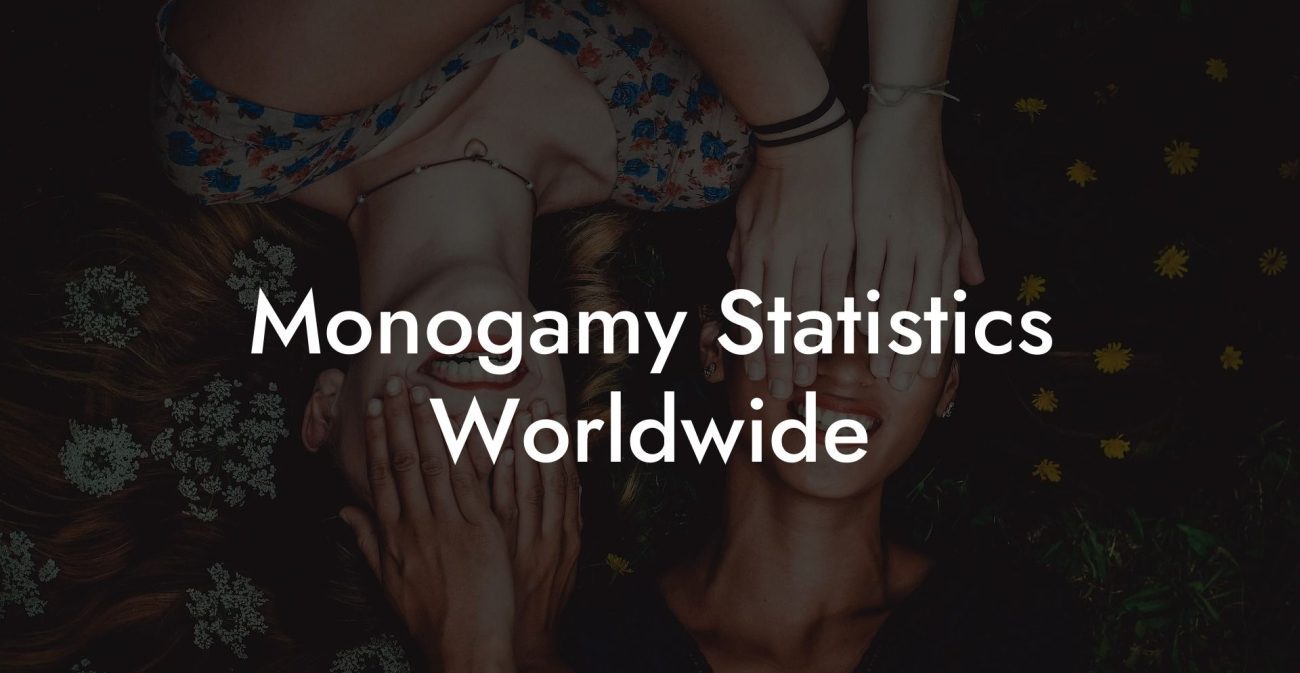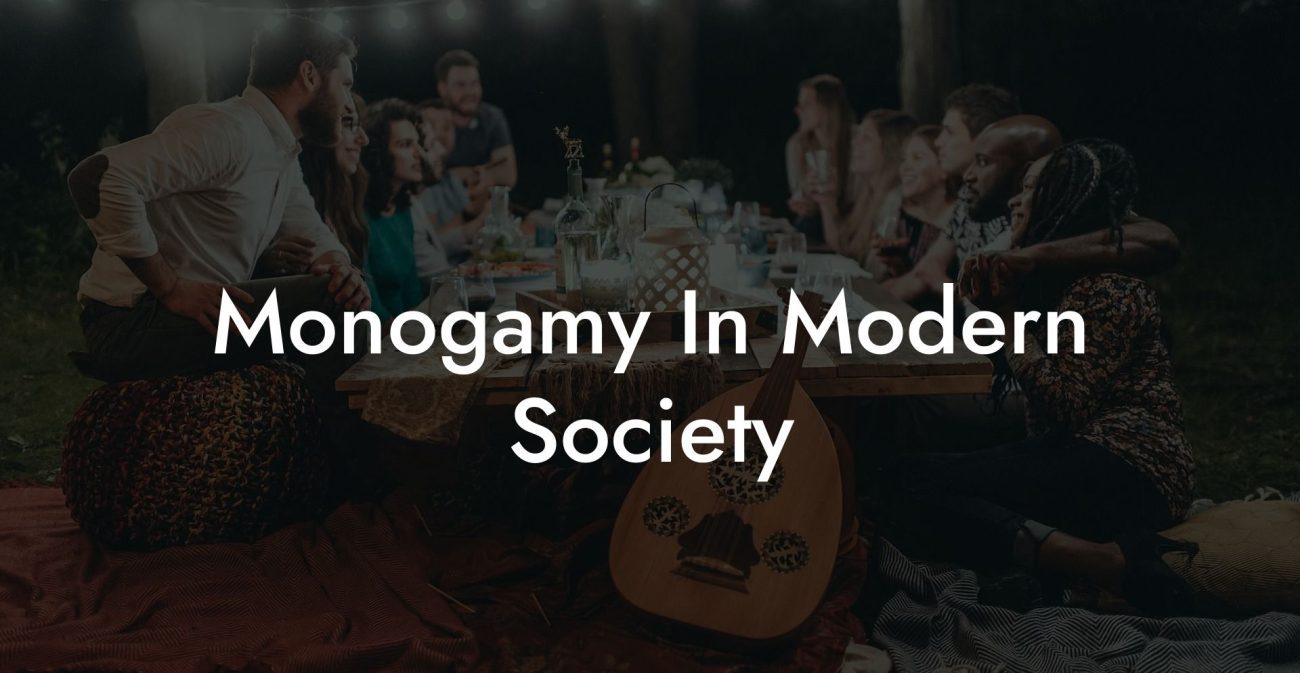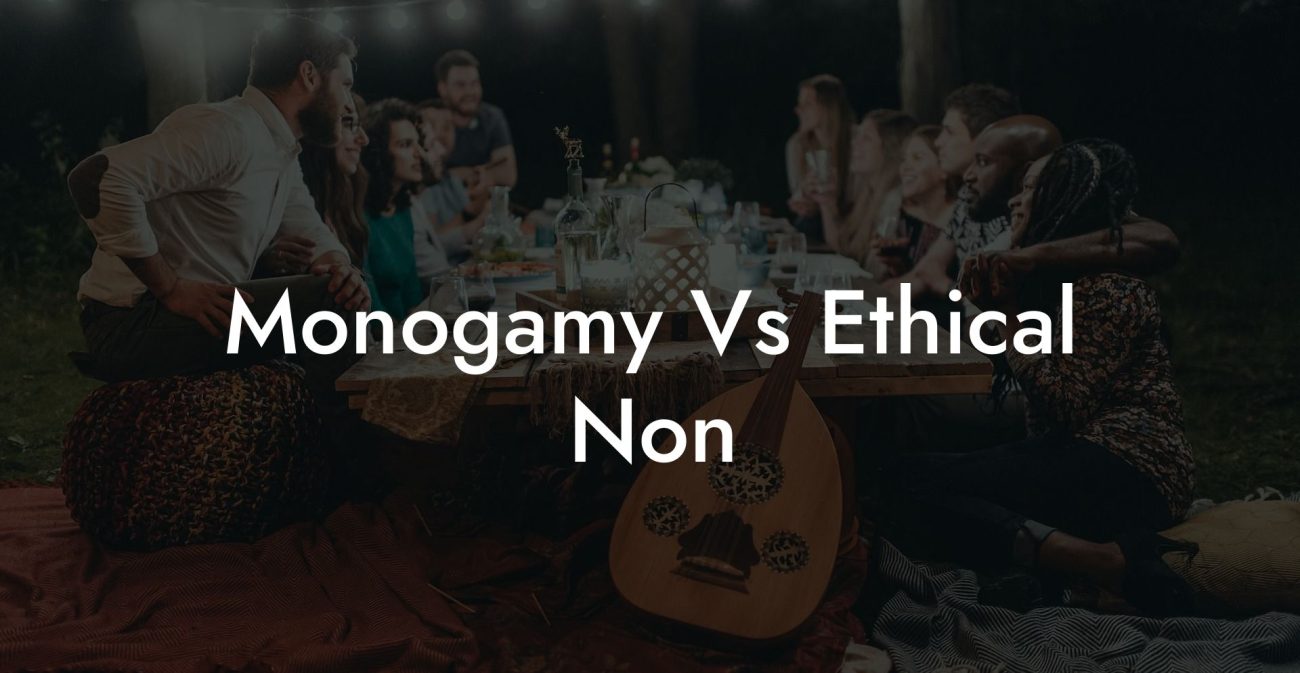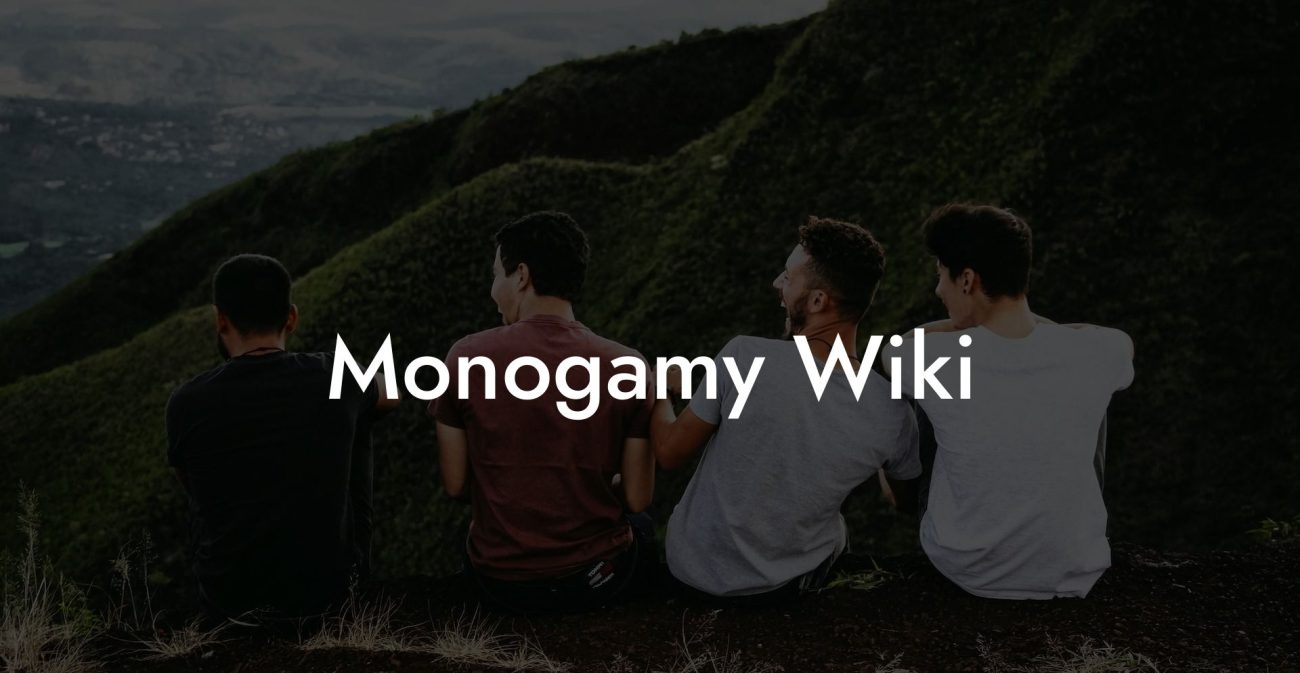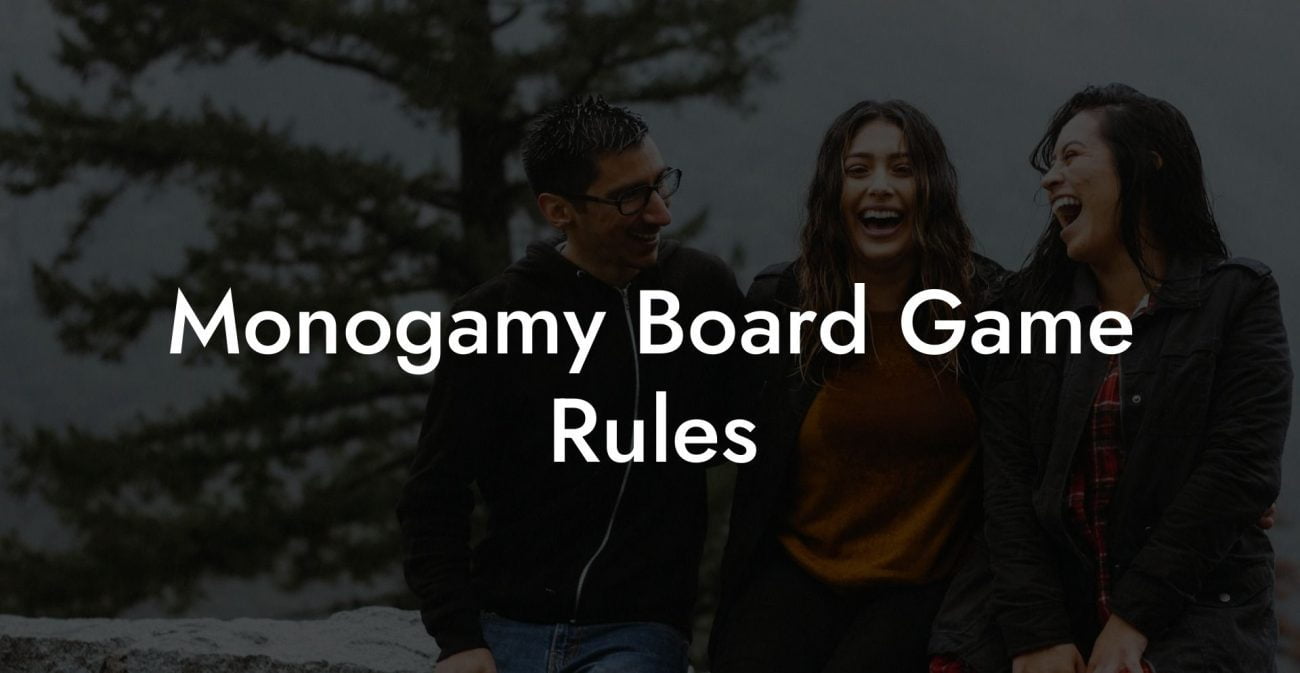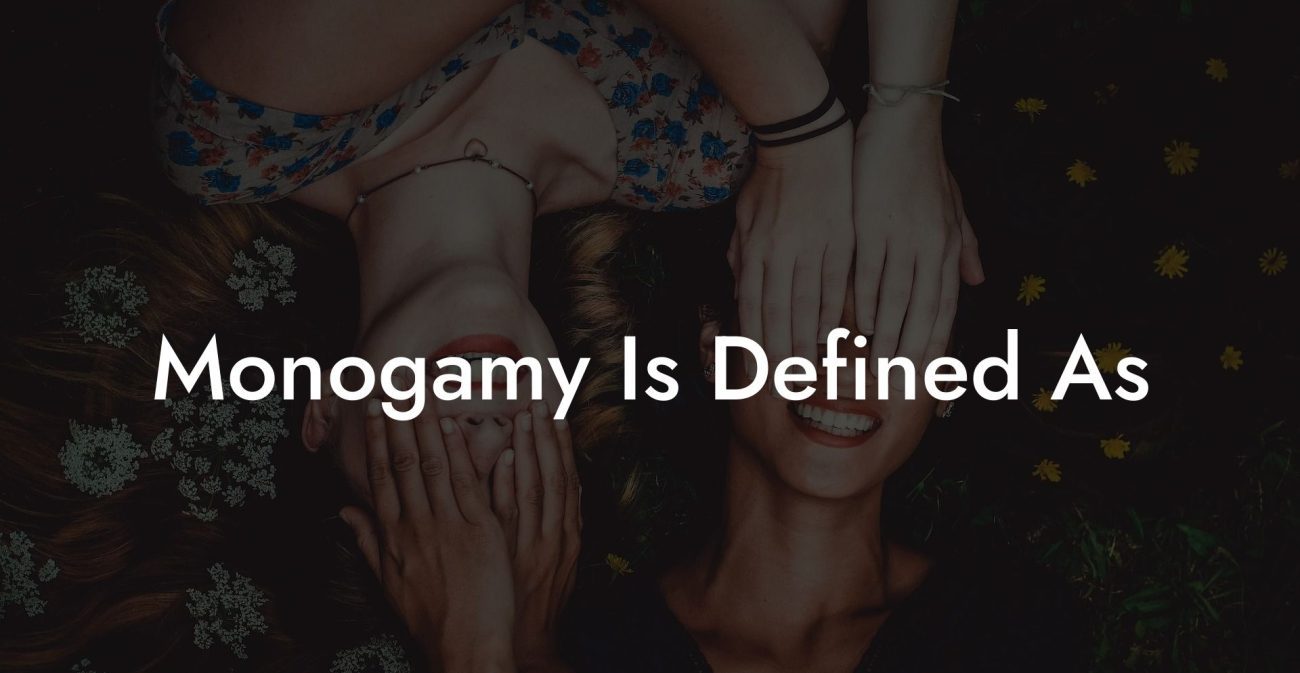Are you curious about the world of ethically non-monogamous relationships? Perhaps you've heard of polyamory or open relationships and are wondering if they could be a fit for you. In our increasingly diverse and open society, it's essential to stay informed and consider various relationship structures outside the traditional monogamous model. In this guide, we'll explore the nuanced, fascinating realm of ethically non-monogamous relationships and provide some valuable insights to help you navigate this exciting territory.
Ethically Non Monogamous Table of Contents
What is Ethical Non-Monogamy?
Ethical non-monogamy is an umbrella term for various relationship structures that involve multiple romantic or sexual partners, with the knowledge and consent of everyone involved. The key to ethical non-monogamy lies in open communication, honesty, and trust. Some popular forms of ethical non-monogamy include:
- Polyamory: engaging in multiple loving and committed relationships with the consent of all parties involved
- Open relationships: a committed partnership that allows for outside sexual encounters, with specific boundaries agreed upon by both partners
- Swinging: couples engaging in recreational, non-committal sexual experiences with other individuals or couples, often at organized events
Considerations for Ethical Non-Monogamy
If you're interested in exploring ethical non-monogamy, it's essential to keep these key considerations in mind:
Open Communication
Honesty and transparency are crucial for navigating non-monogamous relationships. Discuss your expectations, boundaries, and any fears or concerns you have with your partner(s). Regular check-ins can help ensure everyone remains on the same page as your relationships evolve.
Establish Boundaries
Every relationship is unique, and it's essential to establish clear boundaries that work for everyone involved. This may include rules about safer sex practices, relationship hierarchy, or how much time is spent with each partner.
Emotional Support
Ethical non-monogamy requires a strong emotional foundation. Be prepared to offer and receive emotional support and empathy, as jealousy and insecurities may arise in the course of exploring multiple relationships.
Time Management
Balancing multiple partners' needs and schedules can be challenging. Prioritize your time and energy to ensure that you can devote the necessary attention to each relationship.
Ethically Non Monogamous Example:
Tom and Sarah have been in a committed monogamous relationship for five years. They both feel an innate curiosity about exploring other romantic or sexual connections but don't want to jeopardize their strong bond. After many open and honest conversations, they decide to dip their toes into the world of ethical non-monogamy by opening up their relationship.
They establish clear boundaries, such as always practicing safe sex with new partners and keeping romantic date nights reserved solely for each other. As they navigate this new territory, Tom and Sarah are committed to supporting one another emotionally and regularly checking in to maintain open communication. As they engage in this ethically non-monogamous journey, Tom and Sarah find that their own relationship grows stronger and more intimate, reaffirming their commitment to each other.
Embarking on a journey into ethical non-monogamy can be an exciting, fulfilling, and enlightening experience, whether you're in a committed partnership or exploring relationships as a single individual. By adhering to the principles of open communication, boundary setting, and emotional support, you can successfully navigate the world of ethical non-monogamy and discover a relationship structure that enriches and strengthens your love life. If you found this guide valuable, please share it with others who may be curious about this relationship model and explore the myriad of other resources available on The Monogamy Experiment.




